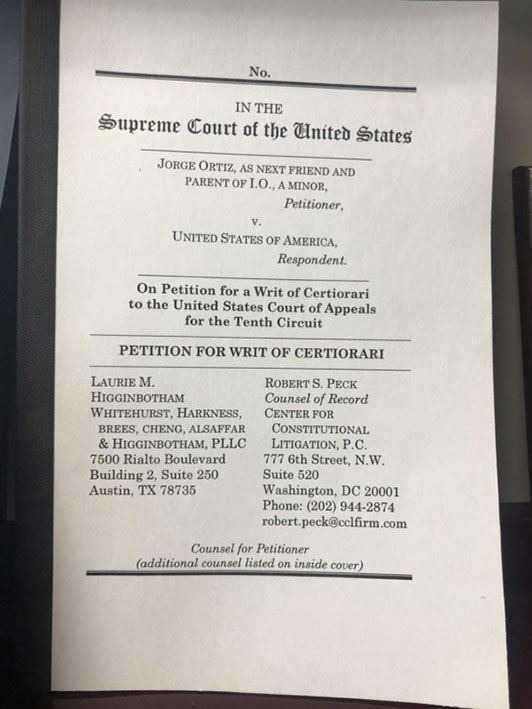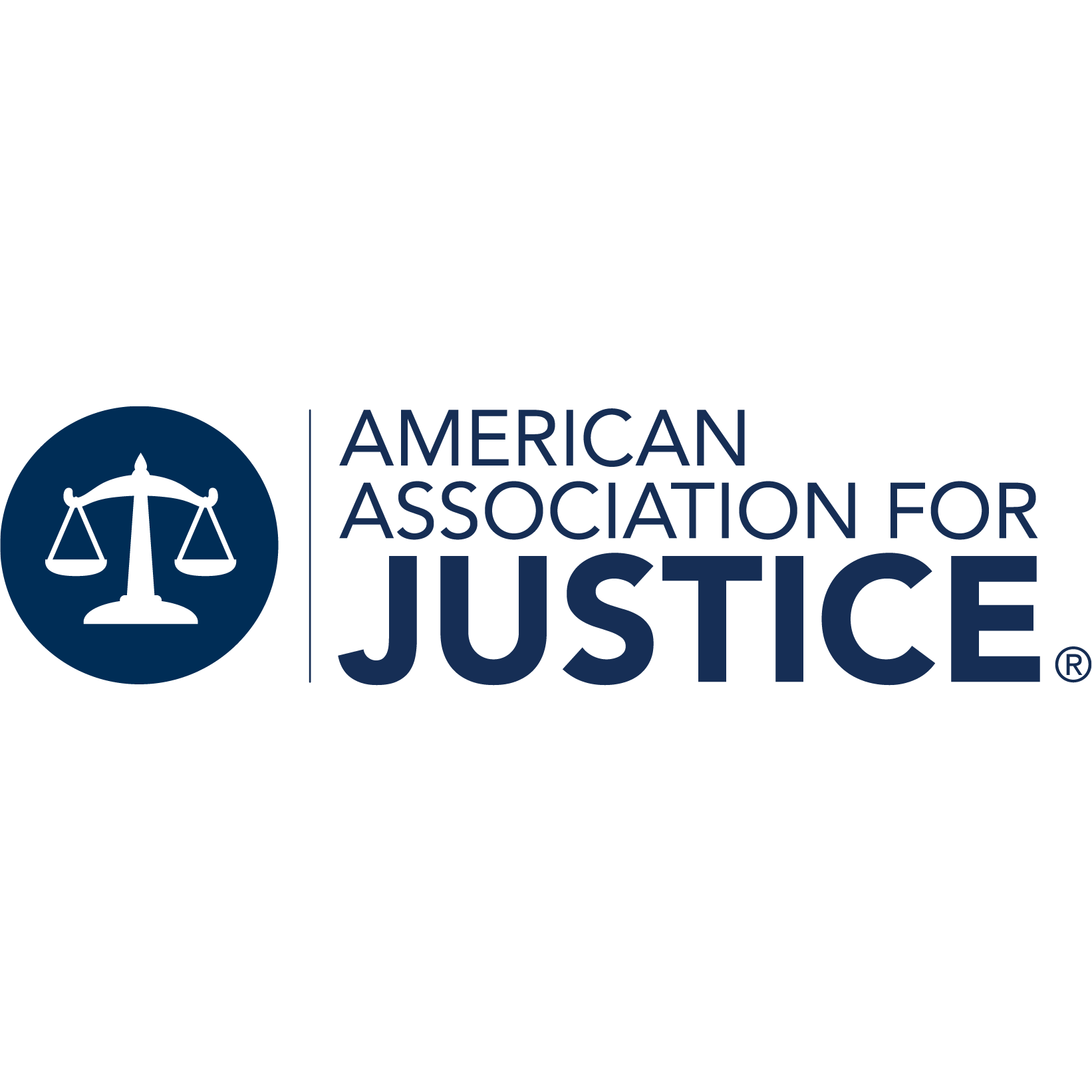Our firm has achieved some of the highest judgments and settlements under the Federal Tort Claims Act across multiple states. With a track record of setting legal benchmarks nationwide, we are committed to delivering exceptional outcomes for our clients.

Can Active-Duty Military Service Members Sue the United States Army, Navy, or Air Force?
They cannot sue, but they can bring an administrative claim under Richard Stayskal Medical Accountability Act.
Active-duty military service members may not file suit against the United States Army, Navy, or Air Force in federal court. But active-duty military service members do have an alternative to filing a lawsuit if they have suffered injury or death due to the negligence of a federal employee providing medical, dental or health care. Active-duty military may bring an administrative claim for medical malpractice under the Richard Stayskal Medical Accountability Act, and amendment to the National Defense Authorization Act (NDAA) which became law in December of 2019.
For years, certain military family members, veterans, and civilians have had the ability to file suit against the government under the Federal Tort Claims Act (FTCA), if they have suffered malpractice at a military medical facility. However, a legal rule called the Feres Doctrine has prevented active-duty military members from bringing claims or filing suit under the FTCA for some 70 years now. In the case Feres v. United States, the Supreme Court created a judicial exception that bars active-duty members of the Armed Forces from suing the government via the FTCA. For years, Feres has drawn disapproval from far and wide.


Across the United States
Achieving Justice Nationwide with Unparalleled Verdicts and Settlements
National Trial Law has a storied history of securing landmark verdicts and settlements across the United States. Notable achievements include a $230 million judgment for survivors of the Sutherland Springs Church mass shooting, a $44.7 million trial judgment for a birth injury at an Air Force hospital, and a $21.5 million verdict for a veteran who suffered catastrophic brain damage due to malpractice at the Manchester VA Hospital—the largest personal injury award in New Hampshire history. These results underscore the firm's dedication to holding institutions accountable and delivering justice for their clients.
-
Record-Setting $230,000,000
Trial Win Sutherland Springs Mass Shooting
Highest Verdict and Settlement in FTCA History -
Record-Setting $44,717,681
Trial Win Air Force Birth Injury -
Record-Setting $21,592,643
Trial Win VA Medical Malpractice -
Record-Setting $10,500,000
Settlement VA Medical Malpractice
What Type of Case Can Service Members Bring Against the Government?
Active-duty members of the Armed Forces can file an administrative claim under the Richard Stayskal Medical Accountability Act for any type of medical malpractice case that meets the following criteria:
- The medical malpractice arose out of a negligent or wrongful act or omission and resulted in the injury or death of a member of the Armed Forces.
- The medical malpractice can be a result of medical, dental or other health care received by the service member at a military medical treatment facility either inside or outside the United States.
- The medical malpractice must have occurred at a military medical facility that is not in an area of armed combat.
- The service member can file the claim or in the case of wrongful death, family members of the service member can file.
- The claim must be filed within two years of the discovery of the malpractice.
But without the right to file suit, the reality is that the United States – the defendant wrongdoer – will get to decide what a claim is worth and whether or not to pay it. In light of this fact, active-duty military and their families should consult a law firm with a strong record when it comes to negotiating settlements with the Department of Defense. If you are active-duty military and have a Military Claims Act claim, contact us for help.
Our Lawyers Fighting the Feres Doctrine
The Richard Stayskal Medical Accountability Act was a significant step towards gaining equal legal protections for the members of the Armed Forces, and our law firm is proud to have played a key role in its passage. Attorney Laurie Higginbotham worked hard behind the scenes to get the bill the attention it deserved. She even traveled to Capitol Hill in October 2019, meeting with Senate staffers, answering questions about the bill, and fighting for military families. She explained to senators and representatives the importance of the Act.

This new right to bring a claim is still inadequate without the right to file suit in federal court, but it’s certainly better than no relief at all, which has been the case for a generation. Some 70 years ago, the Supreme Court created a judicial exception to the FTCA as a result of the controversial case Feres v. United States. The Feres doctrine bars active-duty military personnel from bringing claims against the government for injuries arising out of “activity incident to service.”
The law firm of Whitehurst, Harkness, Brees, Cheng, Alsaffar, & Jacob PLLC has worked tirelessly to change this law for decades, in the United States Supreme Court, the Circuit Courts of Appeals and before Congress. Attorney Jamal Alsaffar represented the Brown family in the Sixth Circuit Court of Appeals in a Feres case. There, at the district court level, the Government successfully dismissed the child of an active-duty soldier from suing for birth injuries caused by medical malpractice. Thanks to his efforts at the Sixth Circuit Court of Appeals, Mr. Alsaffar convinced the Sixth Circuit to reverse the lower court, and the family was able to pursue a lawsuit on behalf of the child against the United States to win a $13 million judgment against the Government.
Contact Our Attorneys
It is extremely time-consuming and expensive to pursue a complex military case, but our firm can skillfully guide you through the litigation process. Contactour attorneys today to schedule a consultation.
Thereafter, Laurie Higginbotham, Jamal Alsaffar, and Tom Jacob represented the Witt family in an appeal to the United States’ Supreme Court, arguing that the Court should reverse itself and let active-duty service members sue for medical malpractice. Besides our own legal representation, we mounted an amicus brief campaign, finding eight organizations and eight lawyers also willing to write amicus briefs asking the Supreme Court to take the case. Unfortunately, the Supreme Court declined to grant certiorari.
Next in our battle to overturn Feres, Laurie Higginbotham represented the Oritz family. In that case, the United States argued that the baby of an active-duty mother could not sue the Government because of Feres. As before in Witt, Attorney Higginbotham worked with a team of lawyers across the country and took the case all the way to the Supreme Court.
Once again, our firm led the amicus brief campaign, and obtained 10 amicus clients and lawyers willing to write on behalf of military mothers, including an amicus written by members of Congress. This time, before the Supreme Court could decide whether to grant or deny certiorari, the United States offered to settle the case for full value and a settlement was reached on behalf of the child before the Supreme Court made a decision.
The law firm of Whitehurst, Harkness, Brees, Cheng, Alsaffar, & Jacob PLLC believes that active-duty members of our Armed Forces deserve full access to the rights and protections offered by the Federal Tort Claims Act. We won’t stop fighting for service members and their families until Feres is overturned. If we can assist your family in the pursuit of justice for a medical malpractice injury or wrongful death, please contact us today for a complimentary telephone consultation.
Where Things Stand – September, 2020
The Richard Stayskal Medical Accountability Act was signed by the President in 2019 and is now law. For the first time in 70 years, our law firm can help active-duty service members and their families recover settlements. While the right to file suit in federal court is still not yet a reality, we can help military families get compensation for their injuries and suffering. If you or an active-duty service member in your family has been a victim of medical malpractice in the last two years, call us today.
What Sets Us Apart
-
PEER APPROVED
More attorneys named Super Lawyers by Thomson Reuters in the “Personal Injury Medical Malpractice: Plaintiff” category in 2014, 2015, 2016, 2017, 2018, 2019, 2020, 2021, 2022, 2023, 2024, and 2025, than any other law firm in Texas (Bill Whitehurst, Chip Brees, Michelle Cheng, Jamal Alsaffar, Laurie Higginbotham and Tom Jacob)
-
RECORD-SETTING RESULTS NATIONWIDE
-
TEXAS ROOTS
Founded in Austin with more than 50 years of trial experience.
-
NATIONAL REACH
National results in complex personal injury litigation.
-
DEEP BENCH
Many experienced lawyers ready to serve you.
-
SE HABLA ESPAÑOL
Our team has multiple Spanish speaking staff members.





.2504041633274.png)




